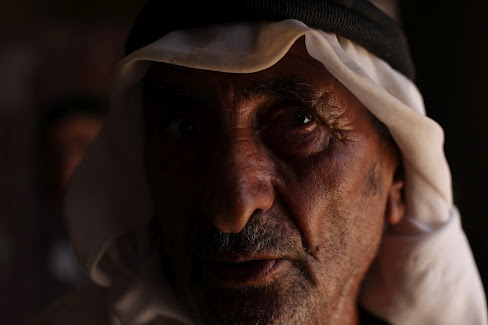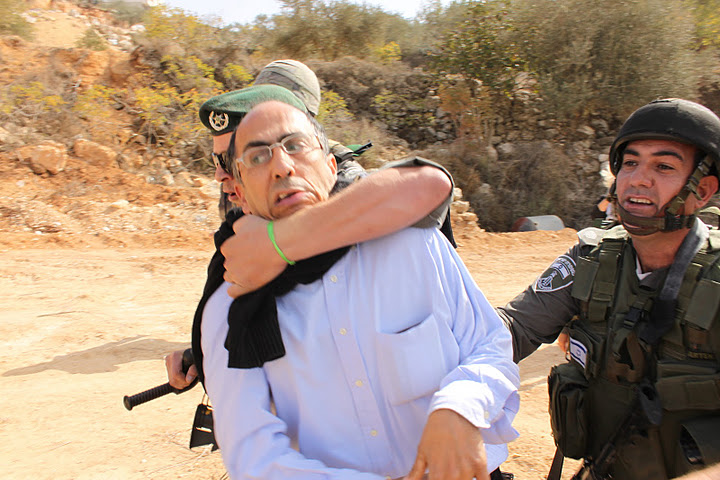Tag: District Coordination Office
-
Arrests and nonviolent actions in South Hebron Hills
26 February 2012 | Operation Dove On February 25th Palestinian men and women, elders and children, together with Israeli and international activists gathered for two demonstrations organized by the South Hebron Hills Popular Committee. The first demonstration, attended by approximately ninety people, was planned in response to twenty-nine trees being cut down during the last four months on…
-
Jerusalem: Explosions, arrests and violence as Israel clears way for settlement activity
by Alistair George 13 November 2011 | International Solidarity Movement, West Bank Three Palestinians were arrested and others were detained, beaten and pepper sprayed by the Israeli military in Al-Walajeh yesterday, as villagers attempted to prevent the detonation of explosives used to widen the route for the separation wall on the village’s land. Previously, large…


